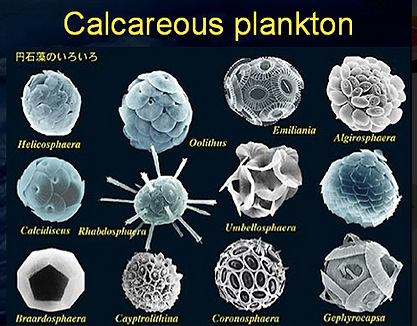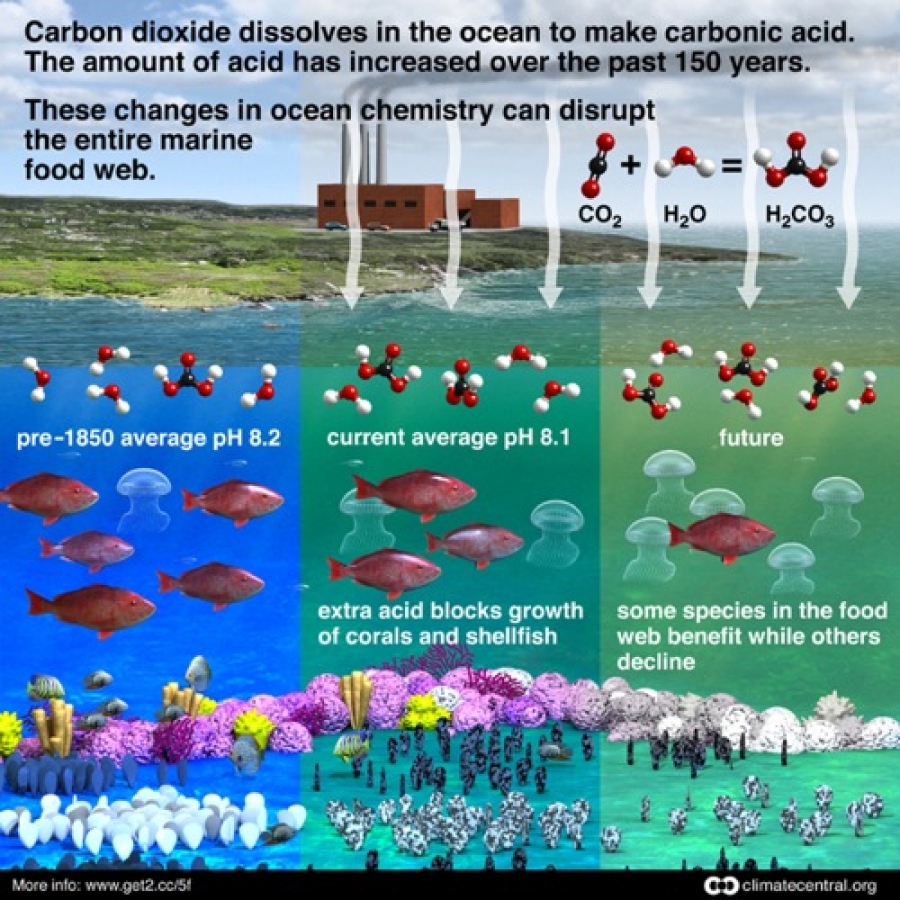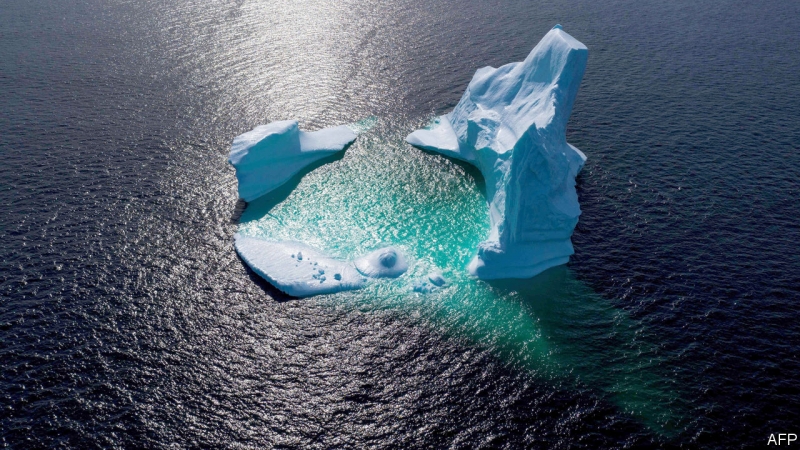Oceani acidi — Acidic oceans


Gli oceani ci aiutano a ridurre la CO2 che resta in atmosfera in seguito alle nostre emissioni: ne assorbono più di un quarto. Ma in questo processo il pH si abbassa e gli organismi marini con guscio calcareo ne soffrono. La maggior parte del plancton ad esempio che è alla base di tutta la catena alimentare in mare. La rivista internazionale Nature Climate Change ha, di recente, pubblicato uno studio sugli effetti dell’assorbimento della CO2 negli strati più profondi dell’oceano, scegliendo come campione il mar del Giappone per le caratteristiche assimilabili a quelle di un piccolo oceano, rivelando che l’acidificazione è arrivata anche negli strati più profondi (dal blog di Le Scienze, edizione italiana di Scientific America, articolo di Antonello Pasini. Img sopra da The Economist).
ACIDIC OCEAN, Nature Climate Change #natureclimatechange #lescienze #theeconomist #tempodacqua #thetimeofwater
Also “The Economist” re launches the news: the world’s oceans are getting warmer, stormier and more acidic. They are becoming less productive as the ecosystems within them collapse. Melting glaciers and ice sheets are causing sea levels to rise, increasing the risk of inundation and devastation to hundreds of millions of people living in coastal areas. (immagine da climatesentral.org)
On September 25, 2019, the IPCC will release its Special Report on the Ocean and Cryosphere in a Changing Climate. The Intergovernmental Panel on Climate Change (IPCC) has released the Special Report on the Ocean and Cryosphere in a Changing Climate. More than 100 leading scientists from 36+ countries prepared the report, citing nearly 7,000 research publications. Here’s what to look for: the latest science on how climate change affects the ocean, coastal, polar and mountain regions—as well as the communities that depend on them; a focused chapter on sea level rise and its ramifications for low-lying islands; a look at climate extremes and “abrupt changes”, including tropical storms and the jet stream; options for risk management, adaptation, and sustainable development.
b


